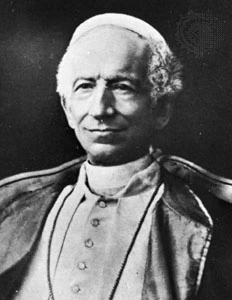Blog Archives
Steve Jobs’ Achievements, In Perspective.
I will be the last one to deny the genius of Steve Jobs. Besides liking the people who do things their own way without looking too much right and left – and one can safely say that no other big company has been, in modern times, run as much according to the wishes and vision of one man as Apple – Jobs truly had a capacity for innovation and – I hate to use the word, but this time it truly fits – vision that is to be found very rarely on this planet.
If you add that his achievement with Pixar alone would be enough to give him rather long obituaries today, or that only one of his innovative products – iPad, iPod, iPhone; no, wait: the iMac alone; no, wait: the first Macintosh, really….. – would make of his death a world news, you get the idea of what kind of entrepreneur the world has lost today. The long list of condoleances and interventions from powerful people from Adolf Hussein Obama down is ample testimony of the stature of the man.
Still…..
still, whenever a famous person dies, I cannot avoid wondering what remains, now, of his prestige and reputation, or whether the long list of honours will give him any better chance of making it through the Pearly Gates.
In days like this, one discovers the immense importance not of people like Steve Jobs, but of everyone of us, because it is on days like these that we realise that if the man managed to avoid hell, this achievement is for him a far bigger triumph than all the innovations he brought on the market; whereas if he didn’t, all the above mentioned achievements are dust anyway.
I do not want to express where I would bet my half pint about his eternal destiny. Actually, I do not want to think of it, because the thought is very sobering. In a way, Jobs epitomised the idiotic ways of so many of his contemporaries: the strange pescetarian diet (apparently, generally chosen for health reasons. Then you get pancreatic cancer…), the Zen Buddhist marriage, or the clearly “progressive” orientation (google around to see Catholics angry at having their applications not allowed, when the sodomites have all theirs). Let us say that, bar a last minute conversion, his hand of cards does not make the impression of having been very good.
And this is really the key, isn’t it? If we try to have a better hand of cards the day we kick the bucket (and we might well not be given as much time as Jobs, a man who knew several years ago that his way to the Creator was being fast-tracked) everyone of us can fairly easily accomplish more than he ever did on this planet; then, by definition, an infinite success ranks above every earthly one. Particularly, I add, when it concerns us so directly. The immensity of one human soul lets Apple Computer pale in comparison.
On a secondary note, I also point out that Jobs is a cautionary tale of the wrong approach to simple things: the obsession with health at the point of discarding good food doesn’t make much sense when we reflect that we are ashes, and can be taken away at one moment’s notice anyway. Last time I looked, Jesus wasn’t worried about his followers eating meat, either. Similarly, Jobs’ idea (how oh very “progressive”) that he could cure his cancer with alternative methods is another of those aha-moments that must have caused him, and many others, a rather brusque awakening from a world of vaguely new-age fantasies. In these attitudes, even a certainly extremely intelligent man shows the childishness of the human brain when it starts to abandon common sense in general , and Christian common sense in particular.
An “Eternal Rest” for Steve Jobs is, I think, fully in order.
Yesterday, he might have achieved his greatest success.
Mundabor
Is Apple “Catholic”?
The unfortunate resignation of Steve Jobs as Apple’s CEO (he is now chairman, but clearly not with the same impact on the company and, I am very much afraid, not for long anyway) has reignited the old controversy whether Apple be Catholic and the PC world protestant.
I would, in the half-serious, half-joking spirit in which these comparisons are made, wholeheartedly agree.
I see the similarities as follows:
1) Apple is based on the leadership of one man. What made Apple such a wonderful weapon is the total commitment to what Steve Jobs thought right. Whilst you cannot make any serious comparison with a Pope, the contrast with the atomised PC-World is undoubtedly there.
2) Apple had a, as far as I know, unique product politics; that – following Steve Job’s creed again – you got an extremely limited palette of products.
There is only one iPhone. Granted, you can buy the old one, but basically your type choice is limited to the choice between the old one and the new one. Even in the choice of colour you are very much constrained. Compare with Nokia & Co., or with the PC producers. Apple didn’t try to please you. It brought its new product on the market and shouted: “Convert yourselves!”
The masses obliged, and believed.
3) Apple had a “love it or hate it approach”. There were no compromises. You had to accept the entire creed. Once bought an iPhone you were locked into the world of Apple apps, once again following the idea that what Jobs thinks is right, and it must be right because it’s what Jobs thinks. An entirely different planet from the anarchic, extremely fragmented world of, say, android.
4) Apple wasn’t easy. Jobs didn’t do things halfway, and he always did things his way. Consequently, he spent mind-boggling amounts in R&D, for which his clients were obviously called to foot the bill. And he gave the world extremely sleek products, for which the same clients were asked to separate themselves from an additional, substantial chunk of cash. Like the Church, Apple offered you a world of uncompromising beauty and superior intelligence, for which there is a heavy price to pay. But with Apple you couldn’t even try to dodge the unpleasant bits; you couldn’t be an apple-follower” in name only”: the phone or other device you had in your hand showed which creed you subscribed to.
Yes, there are some similarities in the comparison.
It is sad to say that – Jobs’ health problem notwithstanding – Apple seems to be in much better shape and to have a much more dedicated following than the Church. It clearly shows that the Church has no Steve Jobs around.
But on the other hand, who has…
Mundabor
P.s. and, obviously, one more thing. Steve Jobs is dying. I hope he uses what probably are his last weeks wisely. I will pray for him.






















You must be logged in to post a comment.